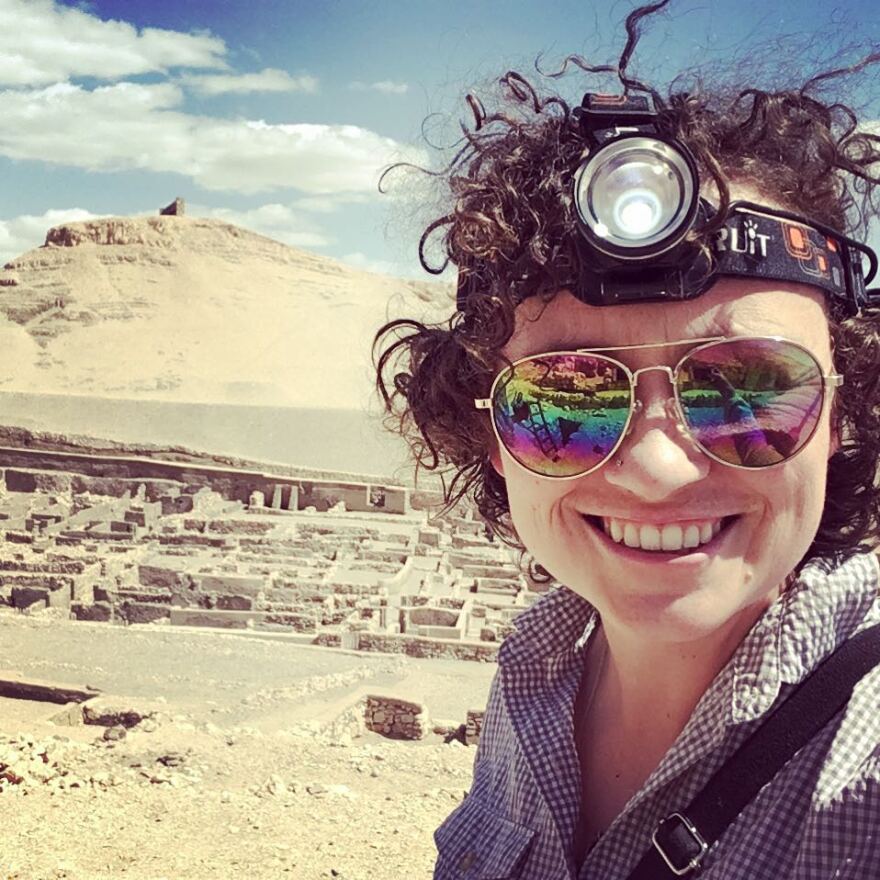As a scholar who works with human remains, Anne Austin had long looked closely at bones. Her training is in osteology and Egyptology, and for many years she worked to expand the world’s knowledge about the health, medicine and disease of past civilizations.
But in 2016, her focus suddenly turned from bones to ancient skin — and body art.

“As I was doing my research, I accidentally came across this really heavily tattooed mummy — minimum 30 tattoos, on her arms, her shoulders and her back,” Austin recalled. “That discovery literally rewrote what we understand about tattooing in ancient Egypt. And since then, I’ve been able to go back and find more tattoos at the site [where] I work.”
The University of Missouri-St. Louis professor isn’t fascinated by these ancient tattoos merely for their own sake. She sees relevance for our understanding of contemporary body art as well — from the stories they tell, to the wide range of functions they serve, to the stigma that is sometimes associated with tattoos.
Austin’s expertise came in especially handy while serving on the dissertation committee for Lacee Kaufmann, who just earned her Ph.D. in nursing at UMSL. Kaufmann’s qualitative study probed the experiences that 12 participants — each of whom have tattoos covering at least 9% of their body — have had with health care providers.
On Wednesday’s St. Louis on the Air, host Sarah Fenske talked with Austin about how her discoveries at the Egyptian archaeological site Deir el-Medina are providing new insights and challenging some long-held misconceptions. The live conversation also include pre-recorded comments from Kaufmann.
Austin delved into some of her latest observations about early tattooing. In the period of Egyptian history that she’s been focused on, she noted, only women seem to have gotten tattoos.
“And it’s fascinating,” Austin added. “As I’ve been reading from the earlier scholarship on tattooing, from the early 1900s, you can see that our own ideas and stigma around tattoos have really bled into our interpretations of the past.”
Some scholars a century ago went so far as to suggest that the tattoos were “exclusively meant to eroticize these female bodies,” Austin explained.
“One scholar went so far as to say as it [marked] them as being prostitutes,” she said. “But most of that was from their own perceptions. So that particular scholar — this is literally the guy who wrote the book on ancient Egypt and tattooing, and he says that he doesn’t know of one woman of good society from modern France all the way back to ancient Egypt with tattoos. So it’s pretty clear that his ideas about tattooing in the present really shifted what he thought [about them] in the past.
“Now that we’re doing more research, now that we have more evidence, what we’re starting to see is that many of the tattoos that we’re finding are linked to religious iconography. And in fact in this particular mummy, we found a bunch of tattoos associated with the goddess Hathor, who is associated with fertility, with protection of the home, of the mother, and of children and of childbirth. So finding so many of those tattoos placed in really permanent and public areas of her body, suggested she had an important role.”
“St. Louis on the Air” brings you the stories of St. Louis and the people who live, work and create in our region. The show is hosted by Sarah Fenske and produced by Alex Heuer, Emily Woodbury, Evie Hemphill, Lara Hamdan and Joshua Phelps. The audio engineer is Aaron Doerr.
Send questions and comments about this story to feedback@stlpublicradio.org.





